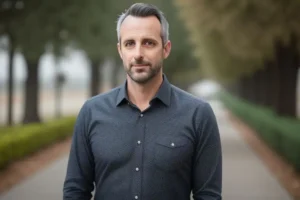- Sam Mendes, the genius behind “Skyfall,” isn’t exactly holding his breath for another Bond gig, claiming the studio prefers directors who play nice.
- Mendes rips into the sweet veneer of Bond filmmaking, suggesting there’s a hidden agenda where control is king.
- Controllable directors, huh? Let’s dig deep into what that really means for creativity in major franchise filmmaking, and whether it’s a recipe for success or disaster.
The Unraveling of Control: A Must-Hear from Mendes
Alright, so here’s the tea. Sam Mendes, who gifted us a little gem called “Skyfall,” has thrown his hat in the ring regarding the Bond franchise’s direction—pun absolutely intended. He’s dropped some serious insights recently about the behind-the-scenes dynamics with the Bond studio, which has just got everyone talking! Picture him sitting casually across from you, sipping a cup of coffee, ready to spill the beans on the not-so-glamorous side of blockbuster filmmaking.
Mendes recently told the press, “I would doubt I’d ever return to direct another Bond film,” — and oh boy, did he follow that up with some whoppers about why that is. It turns out the studios might be leaning toward filmmakers who are, let’s say, “more manageable.” So, what does that really mean, and how does it reshape the idea of artistic freedom versus box office interest? Grab your popcorn, and let’s break it down.
The Studio’s Playbook: Controllable Filmmakers
Mendes’ comments spur some serious questions about the filmmaking process in blockbuster franchises. At the heart of it, we find two dogma dichotomies: creativity versus control.
What’s that term they use? Ah yes, control freaks. In Hollywood, the studios often opt for directors who stick to the script—not just literally, but also in maintaining a rigid vision that aligns with the almighty profit margins. Mendes pointed out that the studio tends to favor directors who won’t go all “artistic genius” on them. Which leaves us pondering:
- Are we sacrificing creativity for profitability?
- What happens to unique storytelling in the age of franchises?
From the looks of it, Bond is trapped in a paradox. On one side, you have the stunning visuals, the elaborate action sequences, and the iconic characters. On the other, there’s this huge pressure to deliver commercially viable content that banks on nostalgia and fandom. Let’s lay this all out:
| Factor | Controllable Directors | Creative Mavericks |
|---|---|---|
| Flexibility | Low—often stick to formulas | High—more room for originality |
| Risk Tolerance | Low—avoid bold narratives | High—embrace challenging themes |
| Studio Pressure | Excessive—restrictive edits | Minimal—more creative freedom |
| Box Office Results | Usually solid* | Varies—can lead to cult classics, too! |
*Solid results have their own pitfalls, though; think “safe but boring.”
But wait! Let’s not forget that a studio like Eon Productions, which has the reins on Bond, is accustomed to the old reliable box office draw that the seasoned hands provide. That’s often the primrose path they stroll down. Mendes’ pangs for artistic freedom clash with the corporate machine of Hollywood—a tale as old as time.
The Yawning Abyss of Franchise Fatigue
You might find this a bit paradoxical, but aren’t we living in an age of franchise fatigue? We’ve got Marvel, Star Wars, Harry Potter spinoffs, and of course, the ever-lingering James Bond. At what point do we acknowledge it’s not just about superhero capes and secret agents, but rather the exploration of new narratives and innovative storytelling? Mendes challenges us to confront the cyclical convenience of it all.
Let’s face it, with the Bond franchise spitting out films at a whiplash pace, aren’t we at risk of diluting the essence of what made Bond… well, Bond?
Box Office vs. Aesthetic: A Risky Business
To back Mendes’ argument, let’s zoom into box office data over the last couple of Bond films:
| Film Title | Global Box Office Gross (in billions) | Director | Rating (IMDb) |
|---|---|---|---|
| Skyfall | $1.11 | Sam Mendes | 7.8 |
| Spectre | $0.88 | Sam Mendes | 6.8 |
| No Time to Die | $0.61 | Cary Joji Fukunaga | 7.3 |
Notice how Mendes’ “Skyfall” reigns supreme in both box office success and ratings? The contrasting results from later entries suggest waning interest under the studio’s more hands-on approach.
We crave visceral experiences, characters that resonate, and plots that challenge norms—even in our shiny, escapist world of gadgets and car chases. But if we’re only going to put out Bond films that check off boxes, fans will eventually yawn and scroll past them on streaming services. Seriously, who wants to settle for mediocrity when the bar can soar high?
Mendes’ Call for Artistic Freedom
Mendes isn’t just throwing shade for kicks; he’s pressing an important issue regarding the balance between studio control and artistic freedom. It’s a balancing act that dictates the landscape of modern cinema.
To elaborate further, here’s how artistic freedom can enhance a movie:
- Creative Storytelling: Directors with vision can take risks, explore deeper themes, and expand the universe of a character.
- Character Development: Complex characters create compelling narratives. When creators are given leeway, they can forge memorable cinematic journeys.
- Innovative Techniques: When allowed room to experiment, filmmakers can utilize technological advancements, like stunning cinematography or groundbreaking VFX, to elevate the story.
The tricky part? The box office sacred cow of the industry. Mendes showcases a critical point for creatives, and it can’t be ignored:
- Is marketability becoming the Death Star of the film creative landscape?
While the allure of guaranteed returns streams in, what we often get is a diluted product that’s tailored to please every demographic while neglecting what made the originals groundbreaking.
The Betrayal of Artistic Vision: A Double-Edged Sword
Now let’s shift gears and step into the shoes of the studios. They hold millions in investments and keen expectations for returns, so it’s understandable why they might prefer directors who play it safe. It’s essentially running a slew of calculated risks. However, how’s that been working out?
Here’s a list of pros and cons of having controllable directors in franchise films:
Pros:
- Predictable Revenue: Safe choices usually fill theaters on opening weekends.
- Consistent Themes: Maintains brand identity. Think: iconic product placements ever so subtly woven into the fabric of the film.
Cons:
- Stale Narratives: The curse of sameness—the fear of losing an audience because it’s “more of the same.”
- Lost Innovation: Lack of risk can stifle experimental efforts that push the envelope artistically.
Let’s hear it for Mendes—by seeking artistic freedom and two-way trust in the creation process, we could see films that still pack a punch at the box office while keeping viewers yearning for more. Isn’t that something every filmmaker dreams of?
What Lies Ahead for Bond?
As Mendes neatly explains the “controllable filmmaker” paradigm, let’s reflect on what this means for the future of Bond. If studios continue to function with this “control” mindset, we might see more polished films devoid of the depth and grit that first drew audiences into Bond’s world.
Are we destined for a string of pretty explosions, fancy cars, and barely-there plots?
Possible Future Direction:
- Emergence of New Talent: Only directors brave enough to navigate the studio waters could step in, possibly leading to fresh takes on the classic franchise.
- Cross-Genre Integration: Bond could go beyond the spy formula and delve into unexplored genres—imagine a Bond horror movie or a Bond comedy (okay, maybe that’s a stretch).
- Fan-Driven Choices: With the rise of social media and fandom involvement, studios could pivot towards more community-driven projects rather than focusing solely on safety nets.
The Last Word
Mendes’ lukewarm attitude about returning to Bond directs our heads and hearts toward a more significant question: Are we compromising artistic integrity in exchange for numbers? The blockbuster landscape is at a crossroads where directors, studios, and audiences must navigate the growing tension between control and creativity.
So, here’s your rhetorical conundrum: Is the allure of profit leading us away from the captivating tales and remarkable artistry that once defined cinema?
In a world jammed with formulaic summer blockbusters, let’s hope the “more controllable” directors don’t become the only directors. After all, isn’t that why we watch movies in the first place—to escape mundanity and dive into riveting artistry? Let’s cast our bets on a cinematic future that keeps us on the edge of our seats—not one where the studio just turns the wheel on a well-oiled machine.
Now, where’s that next creative genius hiding? Maybe it’s time we turn our attention to them. Cheers!



